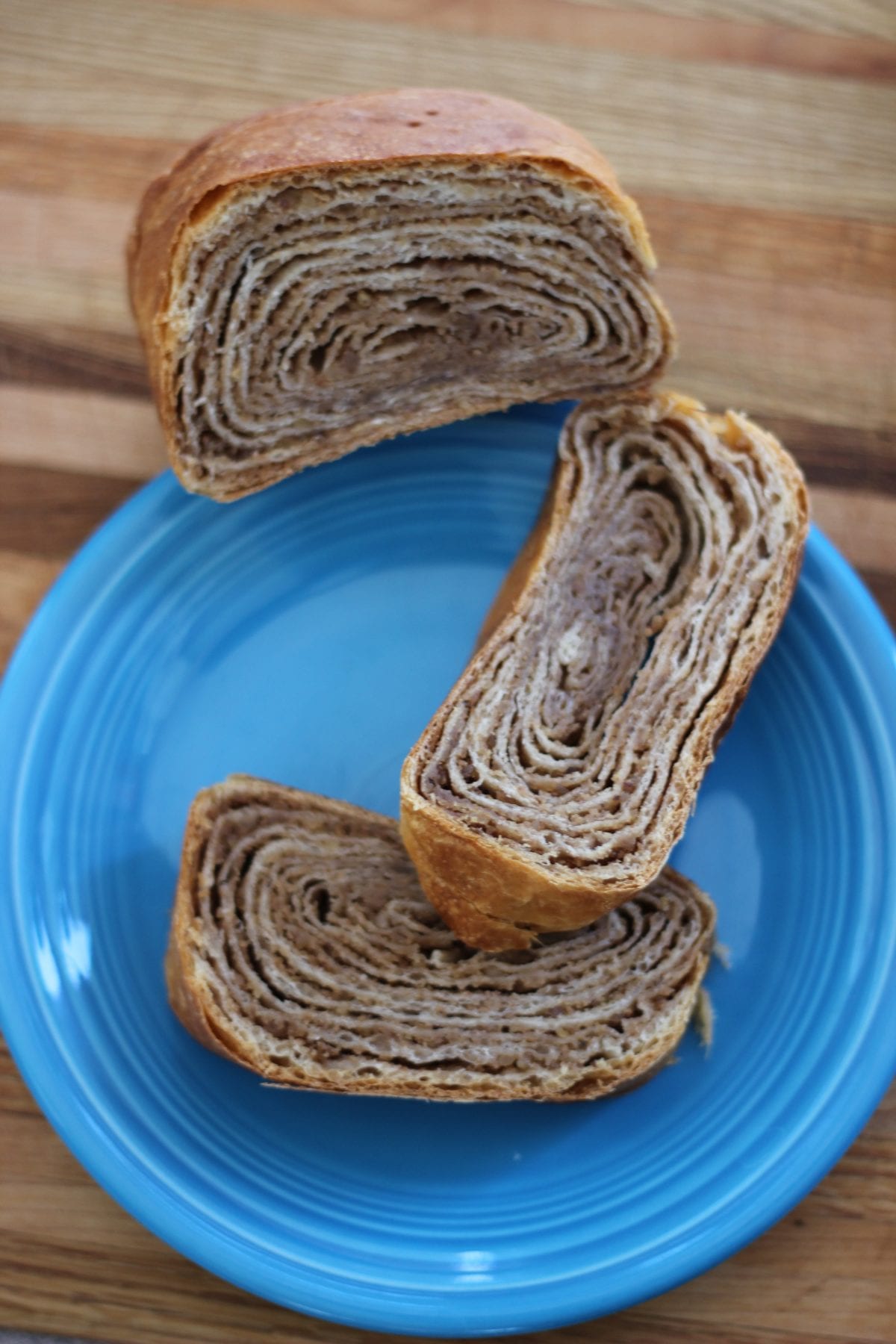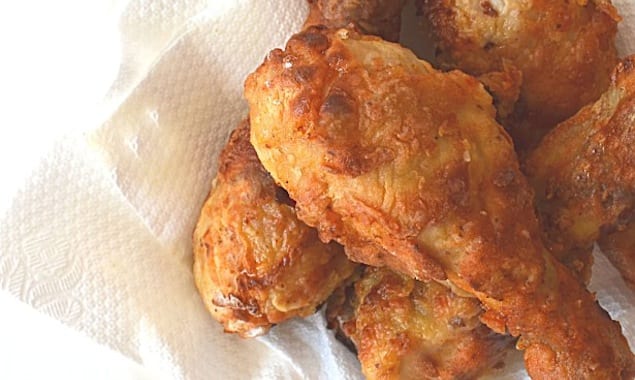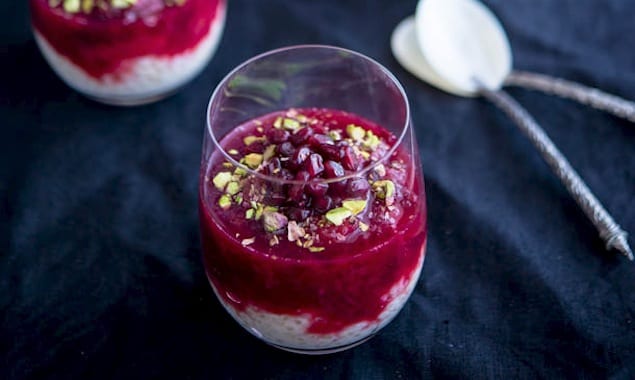A recovering teacher and editorial intern for Honest Cooking, Maya…
Allison Kave, author of First Prize Pies and co-owner of Butter & Scotch, teaches Honest Cooking how to make the perfect pie crust.
By Maya Dangerfield
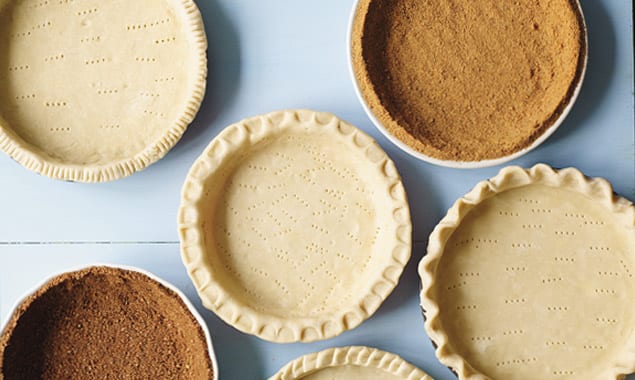 by Tina Rupp in ‘First Prize Pies’
by Tina Rupp in ‘First Prize Pies’
Golden brown with flaky, buttery layers—the quest to make the perfect pie crust is not for the faint of heart. Many have tried, from world renowned chefs to those whose baking expertise begin and end with toast, and many have failed, left only with the charred remains of an apple pie and the nagging feeling that the recipe called for teaspoons, not tablespoons.
Baking requires patience, exactness, and most of all experience. Crusts are a particularly problematic; a good baker knows how to make a mouth-watering, flaky crust and can instinctively tell when a pie crust is ‘just right.’ For beginner bakers, this expertise seems illusive. Luckily, Honest Cooking met up with Allison Kave of Butter & Scotch and author of First Prize Pies with a simple request —how can beginner bakers make the perfect pie crust? Winner of the 2009 Brooklyn Pie Bake-Off, and co-owner of a much anticipated dessert bar, Kave knows a thing or two about baking. Kave gave Honest Cooking three pieces of expert advice for achieving the perfect pie crust.
- Cold Ingredients, Light Hands
According to Kave, novice bakers need to remember, and know the importance of keeping their ingredients cold. “Keeping things cold inhibits the formation of gluten in the dough, because gluten will ultimately lead to a tough crust.” Chill milk, eggs and even flour in the refrigerator before you begin prepping, but butter works bets if it’s chilled. Cut butter into pieces and chill in the freezer. When combining ingredients, Allison notes that a light touch is best for delicate pastry as hard kneading and pulling will work against the formation of a flaky crust. “You don’t want to overwork and overdevelop the gluten. It’s great for pastas, not so great for baking. - Invest in Your Ingredients
In order to become a good baker you need the right tools and the right space. Having the right baking tools doesn’t necessarily mean you need to invest a lot of money into the most expensive kitchen tools. “Nothing super fancy’ Allison clarified, ‘you should have a pastry blender with multiple blades to cut the fat into the flour. A big bowl, a large surface to work on. Your own spoon.” Just like any other hobby, baking is an investment in time and resources. While Allison, with her twenty years of baking experience can get away with rolling pie crusts with a wine bottle, it’s best if beginners invest in the traditional tools of a rolling pin, spoon, and bowl. - It Pays to Have High Quality Ingredients
When making the perfect pie crust having high quality ingredients matters. “With baking you’re working with so few ingredients it’s essential that you have the best quality ingredients and use them well.” Allison notes that having the correct butter is essential in pie making, and would recommend using butter rather than shortening (a solid vegetable based fat). “It’s a small thing, but it makes a difference. Butter is going to have a lot more flavor than shortening. A European butte works well. It has a lower water content, which means there’s a less likelihood of shrinkage, and a lot more flavor.” European style butters have an 83% milk fat content compared to the 80% found in US and Canadian butters. Water binds to flour, so less water in butter mean more space between flour and the formation of flaky layers.
For those beginning bakers who want practice crust-making before diving into their first apple or pecan pie, Kave suggests staring with no bake crust, like her chocolate cookie crust, which is a simple combination of ground chocolate chip cookies and butter. For more tips, or a delicious slice of pie check out Butter & Scotch.com
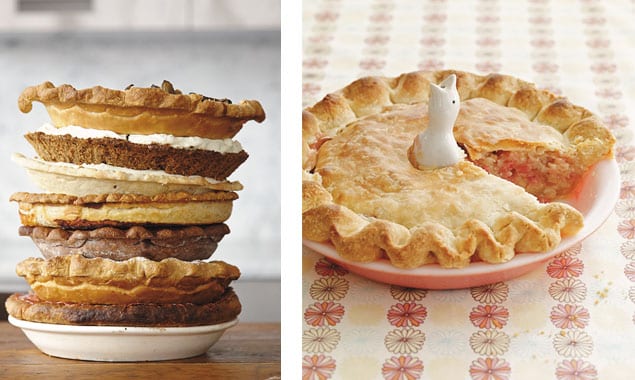 by Tina Rupp in ‘First Prize Pies’
by Tina Rupp in ‘First Prize Pies’
A recovering teacher and editorial intern for Honest Cooking, Maya began her journalism career at Greatist.com. A food lover who never misses dessert, she is also a passionate sports enthusiast. Currently Maya freelances for FoodmakerMedia and copywrites for Techturized. Her writing has been published for Greatist.com, Shape.com, and The Washington Post.

